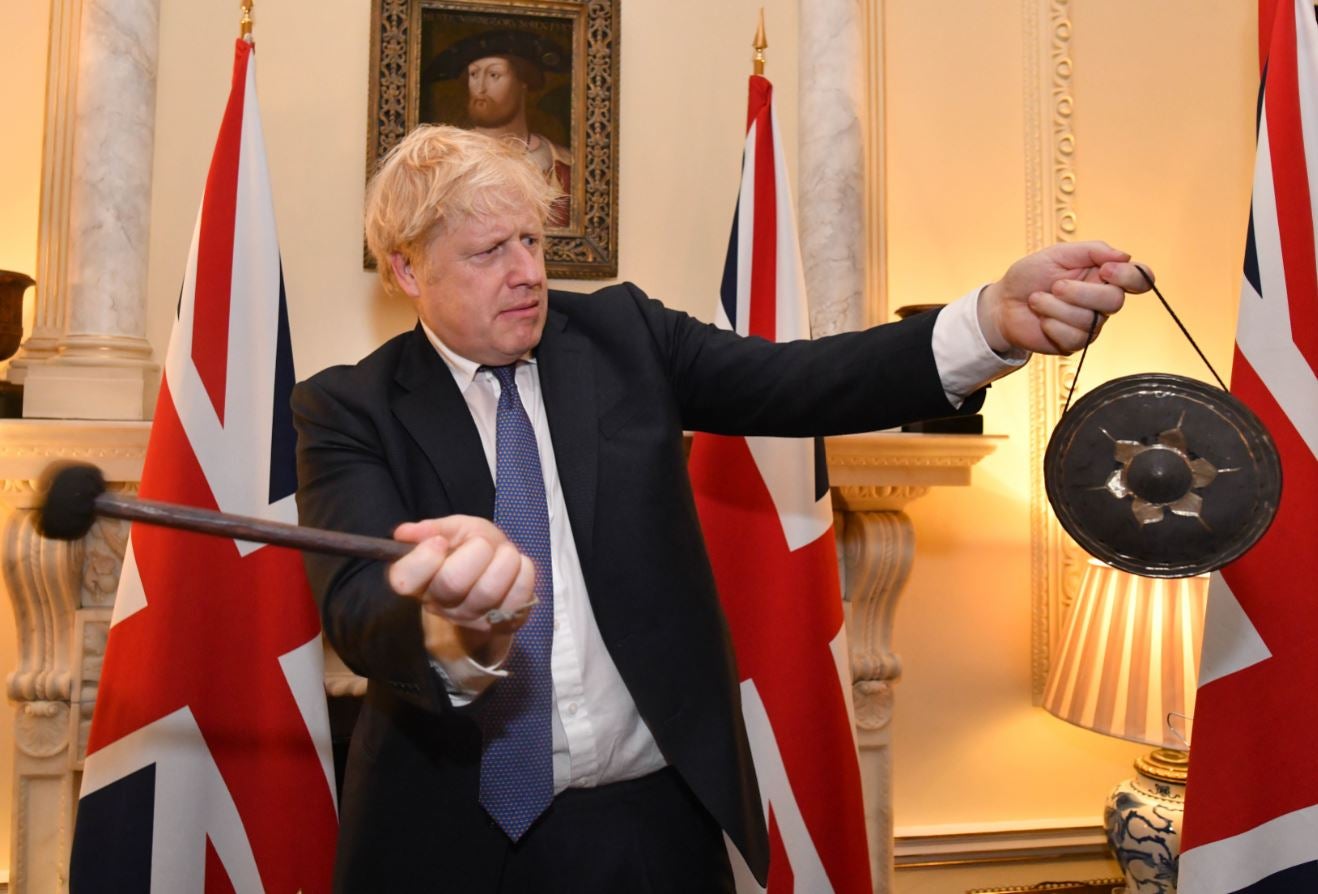The government needs a coherent plan when it to comes to trade and infrastructure
Signals will come from two big events, says Hamish McRae: the cabinet reshuffle, now expected later this month, and the Budget in March


Trade is one thing; regulation is another; industrial strategy is something else. A few words about all three now we have officially left the European Union.
The coming months will be dominated by the trade negotiations between the UK and the EU. How “frictionless” will trade be? Boris Johnson sets out the UK position today, seeking an agreement similar to that achieved by Canada. UK business representatives are concerned about the additional admin that such an arrangement might cause, particularly if the arrangement is a looser one and ends up more like the EU’s dealings with Australia.
One of the key issues will be to what extent the UK is prepared to accept EU standards to maintain access. This is not so much a question of goods standards but wider regulatory ones. The most noted example is financial regulation, and here the most influential comment has come from Mark Carney, outgoing governor of the Bank of England. In a newspaper interview he noted that it was not in the UK’s interest to align with European financial regulation.
“It is not desirable at all to align our approaches, to tie our hands and to outsource regulation and effectively supervision of the world’s leading complex financial system to another jurisdiction,” he said.
The European position that if the UK wants access to the EU market it must accept EU rules is perfectly rational. But in the key area of financial services it would be better not to seek access if it has to adopt European regulation. The basic point here is that finance is being transformed in a number of ways, including the development of a set of technologies under the heading of “fintech”. The UK is second only to the US in fintech investment, ahead of India and China and far ahead of anything in Europe. But there is a danger that this might be inhibited by EU regulation designed to protect existing structures and institutions.
There are other areas beyond finance where it may be better to go independent and focus on non-EU markets. One particular example is the development of Artificial Intelligence. The EU has complex rules and guidelines on AI, and it may be better for the UK to align with US or Canadian practice, since most AI development is being done in North America and China rather than continental Europe. (There is not much of a case for adopting Chinese rules just yet!)
All this will pan out in the months ahead. Stand by for a string of stories about how difficult the deal is going to be. There will have to be compromises. But the third element, industrial policy, is entirely down to the new government’s capacity to call the shots. Trouble is, we don’t know much about what it proposes to do.
Signals will come from two big events: the cabinet reshuffle, now expected around 13 February, and the Budget on 11 March. Ahead of these we know that there will be more investment in infrastructure and in education, but little of the details.
In infrastructure there are two headline issues, the third runway at Heathrow and HS2, and one actual decision, the support of Flybe. There is not much point in adding to the waves of comment on Heathrow and HS2, but it is worth noting that the Flybe decision shows that the government is very mindful of the need to support regional connections. Flybe is the UK’s biggest regional airline.
So the things to look for will be the extent to which the many relatively small infrastructure projects that are in the pipeline are speeded up, which projects still to be given the go-ahead do get the green light, and what new projects are brought forward. Many of these are in the North, but it is important to remember that the South needs investment too. The largest manufacturing centre on the south coast, Plymouth, has poor links with the rest of the country, and a new lower Thames crossing linking Kent and Essex would take a lot of traffic off the Dartford tunnel and the M25.
Education is another key element, in particular investment in science and maths. A week ago the government announced a huge increase in funding for mathematical sciences. This looks like a bellwether for future funding and while this will take some time to feed through, the government has also announced unlimited visas for top scientists to be fast-tracked to the UK.
Investing in infrastructure and education is not of itself an industrial policy. Free ports, another idea that will be developed in the coming months, are not a novel idea either. What we should look for is how a number of half-formed plans are brought together into a coherent exercise in nudging the economy towards growth sectors, and lifting less-successful regions towards the standards of more prosperous ones.
We know there is a huge problem of uneven performance. We know the government is under huge pressure from voters to tackle this. But we have little idea of whether it can develop a coherent policy to do so.
Join our commenting forum
Join thought-provoking conversations, follow other Independent readers and see their replies
Comments